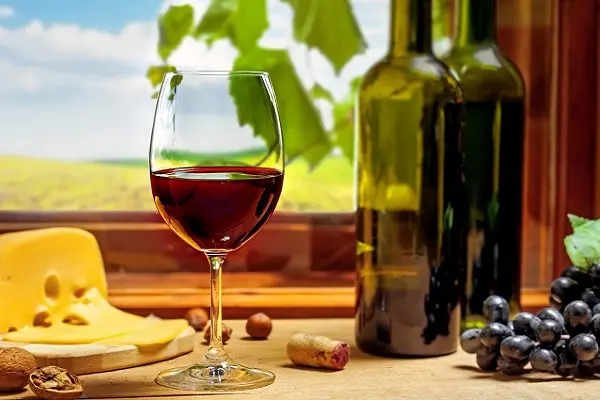France, a key player in the global wine industry, is on the brink of losing its status as the world’s leading wine producer. The country is expected to see a 15% drop in wine production, primarily due to unfavorable weather conditions and the spread of mildew, a fungal disease that thrives in humidity. The French Ministry of Agriculture, as reported by Vitisphere, has forecasted a 10% to 16% reduction in the 2024 wine harvest compared to last year. This decline also marks a 3% to 10% decrease relative to the five-year average, signaling a troubling trend for one of the world’s top wine-producing nations.
This potential decline could cause France to lose its position as the leading wine producer to Italy, a title it only recently reclaimed in 2023 after several years of Italian dominance. The rivalry between France and Italy in wine production is longstanding, influenced by various factors such as climate, farming methods, and innovations in viticulture. However, the current situation in France highlights the severe challenges posed by climate change, which is increasingly destabilizing wine harvests across Europe.
This year, French vineyards have been severely affected by extreme weather, including heavy rains and heatwaves, which have created ideal conditions for the spread of mildew. This disease, caused by fungal pathogens, can significantly damage grapevines, leading to a sharp decline in both the quantity and quality of the harvest. For French winegrowers, 2024 has been a particularly challenging year, as they have struggled to control the disease while also dealing with the broader impacts of an unpredictable climate.
The expected reduction in wine production could have major implications for France’s economy. The wine industry is not only a significant export sector but also a key part of French culture and heritage. A decrease in wine output could disrupt global wine markets, where demand remains high, potentially causing price fluctuations and forcing producers to adjust their marketing strategies.
For Italy, this situation offers an opportunity to strengthen its position as the world’s largest wine producer. By increasing its production capacity, Italy could expand its influence in key markets and solidify its standing in the global wine industry. However, like France, Italy also faces the challenges of climate change, with its own wine production subject to the effects of weather and disease. This suggests that the competition for leadership in wine production will remain intense in the coming years, with both countries continuing to confront significant obstacles.
The fluctuations in wine production in France and Italy reflect a broader trend affecting the global wine industry. As climate change accelerates, traditional wine-growing regions are experiencing more frequent and severe weather events, threatening established patterns of grape cultivation. The rise of diseases like mildew is one example of this trend, forcing winegrowers to adapt their practices to survive in a changing environment.
In the long run, the resilience of wine production in both France and Italy will depend on their ability to innovate and respond to the challenges posed by climate change. This may involve developing new grape varieties that are more resistant to disease and drought, adopting more sustainable farming practices, and using advanced technologies to monitor and manage vineyard conditions.
The potential loss of France’s status as the world’s leading wine producer highlights the fragility of the global wine industry in the face of climate change. While Italy may temporarily take the lead, the long-term outlook for both countries—and the global wine market—remains uncertain. As climate challenges continue to grow, the wine industry will need to adapt to ensure its survival and success in a rapidly changing world. The competition between France and Italy for dominance in wine production is likely to remain fierce, but the ultimate winner may be the one who can best navigate the complex and evolving landscape of 21st-century viticulture.


